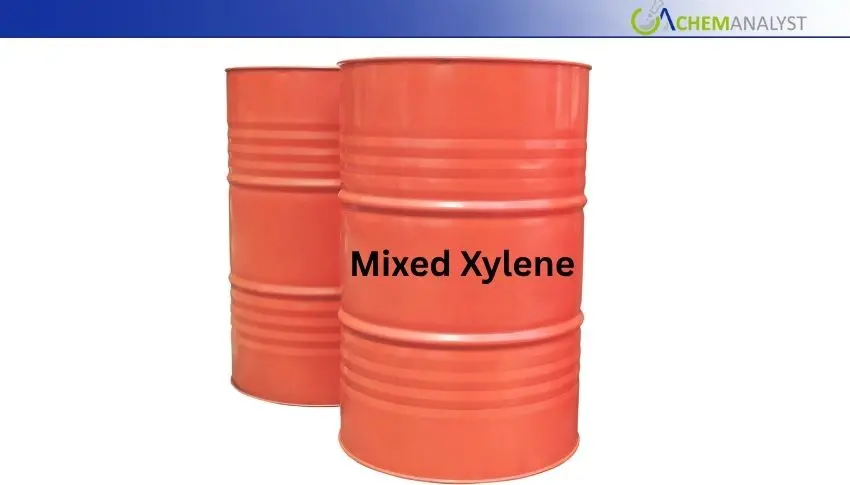Welcome To ChemAnalyst

During the first part of September, the Mixed Xylene market exhibited divergent regional patterns. The U.S. saw bolstered prices as strong demand from the domestic market and export interest lifted aspirations. Although feedstock costs for naphtha remained stable, low inventories and disciplined production resulted in balanced yet tight supply. Downstream markets such as PET and phthalic anhydride (PA) sustained stable performance while PTA remained stable, despite modest declines in demand in PET resin, given early season peaks for beverages. Overall stronger export interests within the United States outweighed weaker input costs that provided a level of support to the market. In Germany, the market weakened early in the month amid low demand for PET as cross-border purchasing weakened and inventories rose. The market remained under pressure despite slight increases in the cost of naphtha, but continued oversupply kept the sentiment low. By mid-September, logistical issues at Hamburg ports for both loading and unloading, stable demand for PA, and strong demand for PTA provided traction in the mixed xylene market. Overall, the contrasting situation shown between the two regions demonstrates how region-specific motivators play a role in either bolstering exports and demand to the U.S. or with demand pressure weighing on recovery in Germany.
In the first half of September xxxx, the performance of the global Mixed Xylene market showed contrasting market fundamentals. The US Mixed xylene prices observed solid gains while Germany was subject to weaker pricing conditions prior to a modest comeback.
In the US, the Mixed xylene market improved in the early September timeframe. Strengthened regional demand and fundamentals from the supply side contributed to the improved market. The first week of September saw bullish momentum and increased activity from domestic buyers and increased mixed xylene export activity from buyers in Canada and Mexico placed upward pressure on prices. Mixed xylene feedstock naphtha prices remained stable; nevertheless, lower inventories and continued draws from nearby downstream consumers, such as PET bottles and phthalic anhydride (PA), created tighter market pressure for Mixed Xylene. Refiners operated at consistent throughput levels but maintained disciplined production, avoiding excess volumes and...
We use cookies to deliver the best possible experience on our website. To learn more, visit our Privacy Policy. By continuing to use this site or by closing this box, you consent to our use of cookies. More info.
